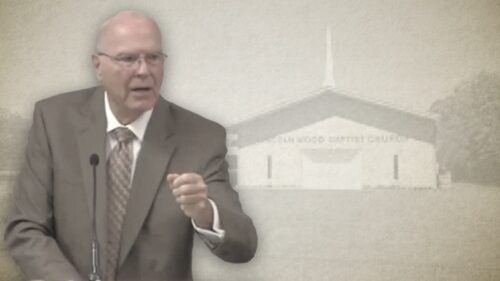-
44 Bible Doctrine – The Being (Existence) Of God
I would like to welcome you back to another study in Bible Doctrine. I am pleased to say that we begin this day with the actual content of Gill’s “Body of Divinity”. We are looking at the first thirty chapters, all dealing with the blessed Godhead of the TriUne Jehovah. Of course, I have rearranged these chapters in order to align them with the Framework of Sovereign Grace. These chapters are located on the top right corner of the diagram, next to the TriUne Jehovah, all of which deal with the being, existence and perfections of the Godhead.
-
Body Of Divinity: The Being (Existence) Of God (DB1/C1)
Having undertaken to write a System of Theology, or a Body of Doctrinal Divinity; and Theology being nothing else than a speaking of God, or a discoursing concerning him; his nature, names, perfections, and persons; his purposes, providences, ways, works, and word: I shall begin with the Being of God, and the proof and evidence of it; which is the foundation of all religion; for if there is no God, religion is a vain thing; and it matters not neither what we believe, nor what we do; since there is no superior Being to whom we are accountable for either faith or practice.
-
The Being (Existence) Of God
The existence of God is the first principle of truth set forth in the Holy Scriptures. "In the beginning God created the heavens and the earth." (Gen 1:1) There is no attempt to prove the existence of God by arguments of science or reason. This knowledge is imparted to the soul at the time of conception, insomuch that every person brought into the world instinctively knows that God is real. Those who deny His existence are only suppressing what God has engraven upon their hearts.
-
43 Bible Doctrine – The ‘Introduction’ To Gill’s Body Of Divinity
I would like to welcome you back to another study in Bible Doctrine. In our previous study, I aligned the chapters of John Gill’s ‘Body of Doctrinal and Practical Divinity’ with the Framework of Sovereign Grace. I will be using this diagram as the key, or map, to navigate us through the teachings of Gill. For this study, I wish to look at Gill’s Introduction to systematic theology. He begins his Introduction by stating the reason for publishing a ‘Body of Doctrinal and Practical Divinity’. It was after completing his commentary on the Old and New Testament Scriptures, he chose to enter upon an exposition of systematic theology, which he delivered week by week, in the course of his pastoral ministry at Carter Lane Chapel.…
-
Body Of Divinity: Introduction
Having completed an Exposition of the whole Bible, the Books both of the Old and of the New Testament; I considered with myself what would be best next to engage in for the further instruction of the people under my care; and my thoughts led me to enter upon a Scheme of Doctrinal and Practical Divinity, first the former and then the latter; the one being the foundation of the other, and both having a close connection with each other. Doctrine has an influence upon practice, especially evangelical doctrine, spiritually understood, affectionately embraced, and
-
The Introduction To Gill’s “Body Of Divinity”
In his Introduction to the "Body of Doctrinal and Practical Divinity", John Gill begins with the reason for tackling the subject, followed by three main headings: (1) The Importance Of Systematic Theology; (2) The Meaning Of Systematic Theology; (3) The History Of Systematic Theology.





